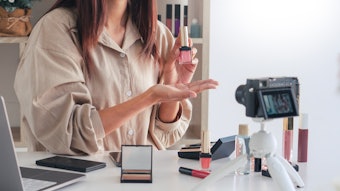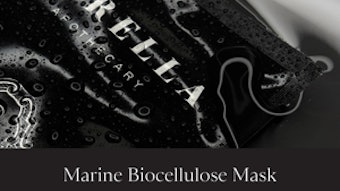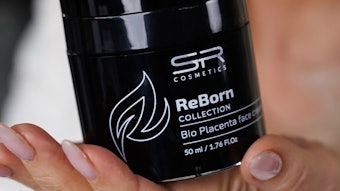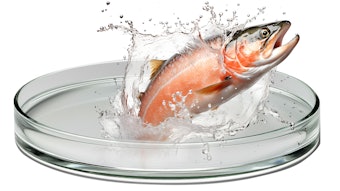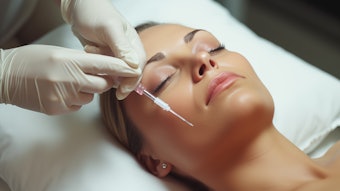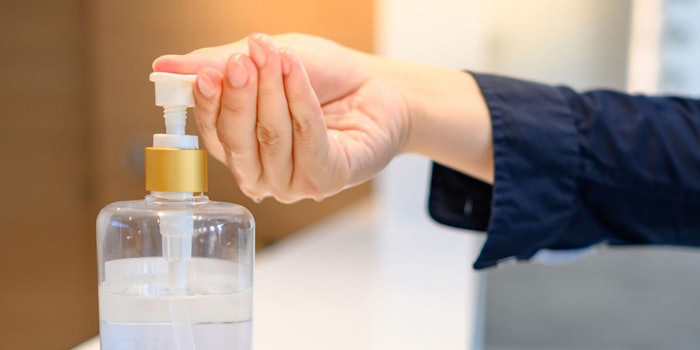
While many spas have made the decision to close their doors in response to the COVID-19 (the coronavirus) outbreak, for those of you who are staying open, it's drastically important to maintain the health and safety of your spa, employees and clients. Steve Sleeper, executive director of the Professional Beauty Association (PBA), explained how "there will, no doubt, be an impact on the beauty industry due to COVID-19. Thus far, [there has been] several industry events canceled or postponed, as well as a decline in salon visits in infected communities."
Sleeper released his top tips on how to prevent the spread of COVID-19 in your facility. Being transparent and open about the steps you are taking to keep your facility clean and virus free is crucial to easing the worries of your clients as well as your employees. It is in times of stress, like this, that people need to put a deeper focus in self-care and relaxation. If you are keeping your doors open, let everyone know that you are a safe space for them to find comfort.
Tip #1: Communication is Key
Currently, the CDC has only recommended quarantines for individuals who may have been exposed to COVID-19, and they have only made it mandatory for individuals who have tested positively for the virus. During this time, keep communication between you, your employees and your clients open and honest.
Start by posting regular updates on the measures you are taking to keep your spa clean and safe from COVID-19. You can do this through e-mails, online bookings, on the phone and in person. Similarly, make sure that your spa professionals are being honest about how they are feeling, and under no circumstances should you allow them to work if they are feeling under the weather. Implore that your clients be as honest as possible as well when it comes to how they are feeling. It could even be worth it to have clients fill out an updated intake form online that can ask them about any symptoms related to COVID-19 as well as the current travel they have undergone before they come in for their appointment. A good way to make sure that clients are being honest is to make rescheduling incredibly easy for them and include a cancellation policy that keeps them from being penalized if they are canceling due to illness. To show your gratitude for them rescheduling to keep you and your employees safe, consider offering a small gift or reward of some kind for when they can come in next.
Post signs around the entire spa that remind and encourage all guest and employees to regularly wash and sanitize their hands. These could be included in the break room, at the front desk, in the bathroom and in treatment rooms.
The PBA also has a tele-health insurance program that allows members to virtually connect with board-certified professionals for medical consultations, questions and concerns.
Tips #2: ALWAYS Focus on Public Health
Sleeper emphasized that "the health and well-being of both the professional salon industry and it's clientele is a top priority, and the best way to help ensure that is to practice great professional and personal hygiene always." Sleeper furthered how this should be practiced regularly in the spa and salon and not only during a public health crisis. This will help to keep your spa and salon clean now, and having this be a regular habit at the top of your priority list will make you prepared for cold and flu season every year.
Tip #3: Disinfection
Back to being clean all the time, state boards direct that proper cleaning and disinfection is mandatory at all times. This is really key for your clients health and well-being in general, but it is especially important during this COVID-19 spread. Remember that disinfection includes tools, counter tops, treatment rooms, back bars, reception areas and styling stations. Basically, if a human can touch it, it should be cleaned and disinfected. When it comes to particularly busy areas, (i.e. front desk counter tops, treatment machines, retail products and shelves, etc.) wipe down those areas regularly with antibacterial cleanser.
Tip #4: Wash Your Hands
Louder for the people in the back. Wash your hands! The CDC recommends washing your hands with soap and water for at least 20 seconds to help prevent the spread of germs. That means every time you are washing your hands, which should be often if you have been touching another person, you should be singing yourself just about any nursery rhyme you can think of, although Happy Birthday and Twinkle Twinkle Little Star are crowd favorites. It can also be useful and convenient to include a 60% alcohol-based hand sanitizer at each employees station and the front desk area to make sure cleaning their hands is easier and becomes second nature.
Key times to wash/sanitize your hands include: before seeing every client, after finishing with every client, before eating, after eating, after using the restroom, after blowing your nose and after coughing or sneezing.
Tip # 5: Building Up Immunity
While there is no cure for COVID-19 yet, that doesn't mean that there are not ways to build up your immune system to ward off the virus. First of all, drinking lots of water is always a good idea. Drinking lots of water can help to build up the immune system. Also, don't forget the importance of prebiotic and probiotics in your diet to build up your gut health. Another great diet addition is vitamin C–lots of vitamin C. Finally, try and get lots and lots of restful sleep. Give your body these weapons to best fight off this virus.
Tip #6: Just Stay Home
This one is pretty simple and does not need a lot of explanation. If you do not feel well or believe you were in a situation that could have raised your chances of having COVID-19, just stay home. The best way to prevent this virus from spreading is thinking of others and not allowing for the possibility to spread the coronavirus to anyone else.
The PBA recommends offering your clientele a "sickness cancellation policy" during this time so that they will not be penalized for canceling their appointment due to illness. In the long run, this will be a much safer way to keep everyone honest.
Tip # 7: Stay Stocked
Keep your spa and salon fully stocked with tissue, soap and alcohol-based hand sanitizer. This will encourage employees and clients to continue healthy habits while in the spa.
Tip #8: Hands Off
This one is particularly difficult because we are a very hands-on industry. We love our warm embraces, but during cold and flu season avoid shaking hands and giving hubs to your clients and co-workers. The CDC has specifically recommended to stop shaking hands with anyone. Communicate with your clients that you are using this "hands-off" protocol to keep up good hygiene and keep everyone safe and healthy. This is also a good reminder to keep your hands away from your face, especially the eyes, nose and mouth.
Tip #9: Stay Updates
It is incredibly important to stay as up-to-date as possible with what is going on with COVID-19. Follow the CDC for facts as they become available to see what new measures are being taken as well as advancements. Also, stay up-to-date on the advancements specifically in your state, as all different states are currently taking different types of precautions measures. Make sure you know what is going on in your state specifically as well as what is going on nationally and globally. When looking for COVID-19 updates, also be sure that you are always getting your information from credible websites.
COVID-19 Symptoms Rundown
Make sure you are aware of the main symptoms of COVID-19 as listed below
- Fever
- Cough
- Shortness of breath
The World Health Organization (WHO) also laid out the general path that the symptoms can take if you do become infected by the virus.
- First, it will infect the throat, so you will have a sore throat for three to four days (this is the case for most cases). You can experience shortness of breath, fever and cough, and the virus can clear up after that;
- In more severe cases, the virus can cause pneumonia, severe acute respiratory syndrome and kidney failure;
- If pneumonia occurs it will cause high fever and difficulty breathing.
